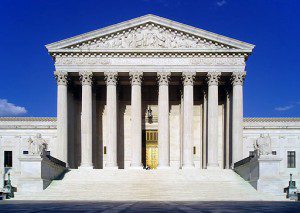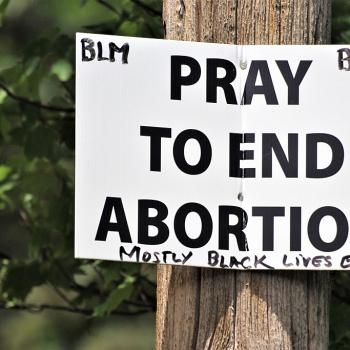 The London Economist, of all sources, has published a description of the arguments in the Supreme Court in the case of Trinity Lutheran Church vs. Pauley (and the State of Missouri).
The London Economist, of all sources, has published a description of the arguments in the Supreme Court in the case of Trinity Lutheran Church vs. Pauley (and the State of Missouri).
The report said that the argument seemed to go in the church’s favor, with even liberal justices expressing skepticism about the state of Missouri’s reasoning in refusing to allow the church to participate in a grant for shredded tires to use for playground padding for its preschool.
The justices asked the state’s attorney if providing a church police and fire protection would also violate its church-state separation law. The attorney reportedly couldn’t come up with a good answer.
The new guy on the court, Justice Gorsuch, also seemed sympathetic to the LCMS institution.
Read the description of the arguments after the jump.
Photo of Supreme Court building by UpstateNYer (Own work) [CC BY-SA 3.0 (http://creativecommons.org/licenses/by-sa/3.0)], via Wikimedia Commons
David Cortman, the church’s lawyer, opened by telling the justices the school had been excluded from the state programme “solely because the pre-school is operated by a church rather than a secular not-for-profit”. Missouri imposes “special disabilities”, he said, only on religiously affiliated pre-schools. And nothing about the tire-scrap programme has anything to do with advancing religion, Mr Cortman insisted: “what we’re talking about is just a surface.” He then turned to several Supreme Court precedents to argue that it is unconstitutional to force churches to choose between being true to their faith and competing for a grant to make their playgrounds safer.
Mr Cortman faced resistance from Justices Ruth Bader Ginsburg, Elena Kagan and Sonia Sotomayor, all of whom asked about potentially religious uses of the playground and whether these justify denying Trinity Lutheran the grant. Citing federalism concerns, Ms Kagan wondered if it might make sense for states to have some autonomy “to go their own way and make their own choices”. Ms Sotomayor noted that 39 states have no-aid provisions in their constitutions because they “don’t want to spend money from the public fisc on houses of worship”. She also cast doubt on whether there is a genuine free-exercise concern at issue: “We seem to be confusing money with religious practice. I don’t think the two are tied. This church is not going to close its religious practices or its doors because its playground doesn’t have these tires.”
Once James Layton, the lawyer for Missouri, rose to defend denying the grant to Trinity Lutheran, Elena Kagan seemed to part ways with Ms Sotomayor, her fellow liberal. “[T]his is a clear burden on a constitutional right”, she said to Mr Layton, and “your interests have to rise to an extremely high level” if the exclusion of churches from government grants is to be sustained. Another member of the court’s liberal wing, Stephen Breyer, made noises that suggested he may side with the state. Mr Breyer grew frustrated with Mr Layton’s seeming inability to draw a line between legitimate expenditures of state funds on religious entities and spending that violates the Missouri constitution. First Mr Breyer asked Mr Layton if, in an “imaginary” state, the free-exercise clause is offended if “we give everybody…police protection, but not churches? We give everybody fire protection, but let the church burn down?” Denying basic services like these, Mr Layton acknowledged, including public health services in schools, are too hostile toward religion to be permitted under the federal constitution. Next Mr Breyer asked how the constitution could “permit Missouri to deny money to the same place for helping children not fall in the playground, cut their knees, get tetanus, break a leg, etc” by roping them out of the tire-scrap programme. “What’s the difference?”
Mr Layton offered two unpersuasive reasons states should be compelled to provide churches with police, fire and health protection but remain free to exclude them from playground resurfacing grants. His first, that only the latter is a selective programme with the potential to stir resentment, was roundly attacked by Mr Gorsuch and others. The transparency of the grant process, with 16 objective criteria governing applications, makes it unlikely a Catholic church, say, would begrudge a Protestant church that won a grant when it did not. And as Mr Layton acknowledged, the Missouri constitution would ban funding for all churches for playground improvements just as it bans funding for some. His second proposed distinction, that police protection operates in the shadows while a playground would be “publicly visible” and “the church gets points for telling people in the community that the state paid for this improvement to their church”, fell flat. Mr Layton did not explain why a church would gloat over the fact the state had paid for its new rubberised playground surface; nor did he mention the constitutional significance. His clearest moment came at his last moment at the lectern: “writing a cheque that says ‘payable to Trinity Lutheran Church’ ought to be on the other side of the line”.
As a lawyer called in to defend Missouri’s decision to exclude Trinity Lutheran, Mr Layton was in a tough spot. The state’s governor announced a change in policy last week under which any pre-school—secular or religious—would now be eligible for a grant. So Mr Layton had to defend Missouri’s original move in 2012 while also explaining why the case is not now moot. As Ms Sotomayor said, it seemed Mr Layton was put in service to “manufactur[e] adversity” and permit the case to go forward. Several justices seemed sceptical that they should rule at all. But if the Supreme Court decides Trinity Lutheran on the merits, it seems a good bet the church wins—maybe by a lopsided vote.














